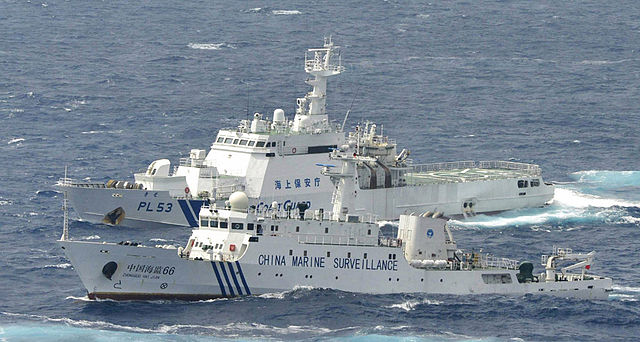Charles Miller offers an excellent overview of the large-sample econometric debate among political scientists about whether globalisation can reduce the possibility of war. I’d like to build on his post by digging a little deeper into the theoretical debate and expanding on how policymakers should approach this question in the context of Asia.
A good place to start is to ask how globalisation—taking as Charles does, the proxy of trade—might prevent conflict.
Scholars such as Oneal and Russett (cited by Charles) who say that trade is a force for peace start from the observation that armed conflict inevitably reduces (if not stops) trade between the belligerents, and potentially their trade with third parties. That imposes high costs on domestic economic actors. Firms can’t export their goods, consumers can’t enjoy imports, jobs are lost and the economy suffers. The key pillar of the argument is that political leaders—the ones making decisions about whether to fight—are sensitive to those costs, and that will temper their belligerence.
Those who disagree don’t dispute the economic costs of fighting, but argue that political leaders, and their constituents, don’t care about economic losses when their nation’s survival, territory or perhaps pride and honour are involved. Instead, publics ‘rally ‘round the flag’ and support their leaders when security is threatened. A similar argument can be made for the ineffectiveness of economic sanctions; countries will endure economic pain when the larger security or political goal is worthwhile.
Who’s right? Well, we must acknowledge that this simple theory obscures a great deal of real-world complexity. It might matter whether the government is an electoral democracy or a repressive autocracy, or what kind of trade is in danger of disruption, or whether alternatives to commerce with the ‘enemy’ state are available. In essence, though, attempting to answer the big question about whether trade can prevent war between two states requires asking two more specific questions.
The first is a question of economics: how sensitive is the state’s economy to the disruption that war would cause to its international trade and commerce?
The second is a question of domestic politics: how much influence do economic interests have over policy? Asked another way, how do leaders balance the economic interests of their constituents against security concerns?
Let’s consider, for example, the region’s most concerning flashpoint, the dispute over maritime territory between China and Japan in the East China Sea. Richard Katz makes a persuasive argument that the economic links between the two countries are a formidable force for preventing conflict. On the economic question, he argues that the depth of Japanese-led investment and production in China is a critical input to China’s development model, especially through job-creation and tax revenue. Similarly, he argues that the Chinese market is equally vital for Japan’s export-dependent economy. On the political question, he argues that the political legitimacy of both governments is founded upon economic growth,regardless of whether those national leaders are democratically elected or not. In his view, the relationship between economic interdependence and political legitimacy is said to restrain both governments’ hawkishness.
While some might want to quibble with his answers, Katz at least answers exactly the right questions. It’s the questions themselves on which policymakers should focus, not just to predict whether globalisation or trade may inhibit conflict, but to understand the mechanism through which such inhibition occurs, so that policies can be targeted to nourish the process.
Countries like Australia with interests in avoiding regional war must look to identify the economic actors—companies, business organisations, unions, and even consumers—within a potentially belligerent country with the greatest stake in peace, and develop ways to multiply their number and increase their capacity to influence their government’s policy. When the next crisis erupts, they might offer the best chance at preventing aggression by their government.
It’s helpful to remember that trade was insufficient to prevent conflagration in Europe a century ago and useful to consider the important ‘data points’ from disputes unfurling right now.
There’s a lot still to be learned from down in the weeds of economic activity between countries and the domestic politics of these interdependent relationships. Focusing on those questions is our best hope to ensure history doesn’t repeat itself.
Darren Lim is an Australian PhD student at the Woodrow Wilson School of Public and International Affairs at Princeton University. His research analyses the microeconomic foundations and strategic consequences of economic interdependence, asking how countries in Asia resolve conflicts between their economic and security interests. Image courtesy of Wikimedia Commons.


